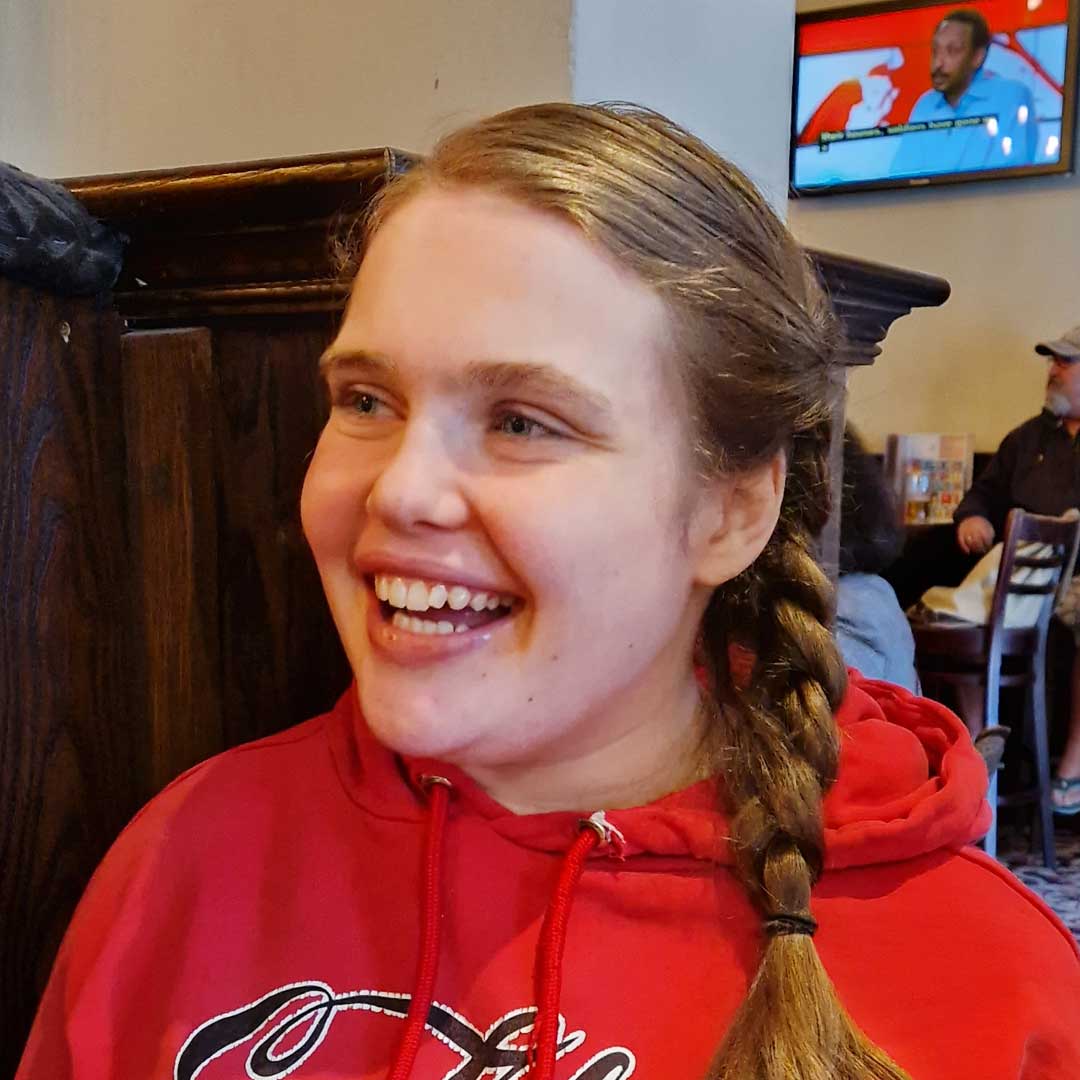
Person-centred care in action
Alice moved into our Surrey care home in 2021 after attending a residential school. The team had to get to know her quickly and understand how best to support her in her new home. The transition came with many challenges for both Alice and the staff but the team’s unwavering dedication, combined with close collaboration with Positive Behaviour Support team manager, Elaine, has yielded positive results.
Elaine said: “Over time, it became evident that Alice had a lot of struggles and would show significant behaviours of distress. The staff team were unsure how to effectively support Alice and reduce her distress and anxiety. Although Alice has a diagnosis of autism, it presents quite differently than many other people with autism. Alice was born with a rare genetic form of epilepsy which manifested when she was six months old with a series of cluster seizures, which has autism as one of the side effects. We needed to understand the causes of Alice’s distress and how best to support her going forward.
“I carried out a comprehensive assessment looking at Alice as a whole, including her life history, diagnosis, medical conditions, family life and background. We looked at how Alice communicates and her sensory needs, and went over past records we could access, as well as spending time with her family to understand her as a person.
“Everybody was involved – Alice’s family, the staff team, and her social worker, as well as a psychologist. Everybody pulled together and we were able to get a very clear understanding of what the difficulties were and what we needed to do to provide the best support for Alice. The Positive Behaviour Support team delivered extensive bespoke training for the staff and we developed an in-depth Positive Behaviour Support plan, focusing on what makes a good day for Alice and increasing her quality of life. The staff learned new ways to support, engage, and interact with Alice, which increased her opportunity to engage and interact with the world around her and has enhanced the team’s rapport and relationship with Alice.”
Alice began to attend On Track, one of our Hampshire day services, shortly after she moved into the care home and, despite initially settling in well, it became clear that the busy day service environment wasn’t working very well for her. On Track service manager Naomi explains: “Food can be a big trigger for Alice, so having our coffee shop so accessible caused her some anxieties. We really wanted to continue to support Alice, so we created a personalised programme for her. Now, Alice is supported by a smaller core team on an outreach basis, and they have developed a really strong relationship with her.
“The bespoke training with the Positive Behaviour Support team really helped to boost our confidence that we were supporting Alice in the best way for her. It’s amazing how much difference simple things make. For instance, if we keep the residential team updated with our exact time of arrival, Alice isn’t worrying about when we’ll be arriving to collect her. It’s been so rewarding to see Alice flourish and achieve her goals – and, most importantly of all, she’s so much happier and enjoying her life far more.”
Alice’s mum Natalie says:
The staff at both services have been fantastic and we can see they are all trying to make our girl’s life better. There’s still much to be done, but everyone seems to be on board and wanting to do their best for her. Elaine’s input has been invaluable not only to the staff teams, but to Alice’s dad and me as well. She clearly knows her stuff and has our girl sussed. Her enthusiasm and vitality is infectious, her knowledge in this field vast – I’ve asked if I can have a mini-sized Elaine to carry around in my handbag!
Elaine concludes: “Both teams have shown exceptional dedication to understanding and supporting Alice and, as a result, there’s been a significant decrease in her distress and anxiety. They’ve learnt how to effectively engage and distract Alice, so incidents which would have previously escalated and lasted for a period of time are now significantly reduced or prevented completely.
“Alice now enjoys regular trips and activities around the area. The team started off with short drives, gradually increasing the range of activities like visits to the seaside for an ice cream. Alice loves her food and, with ice cream as an incentive, she was gradually encouraged to go for more and longer walks.
“It’s been a phenomenal journey. There has been a massive development and it’s all credit to the unwavering commitment of both staff teams. This story illustrates beautifully how the teams have used FitzRoy’s values – we see the person, we are brave, and we are creative – to make a positive difference in Alice’s life and experiences.”
